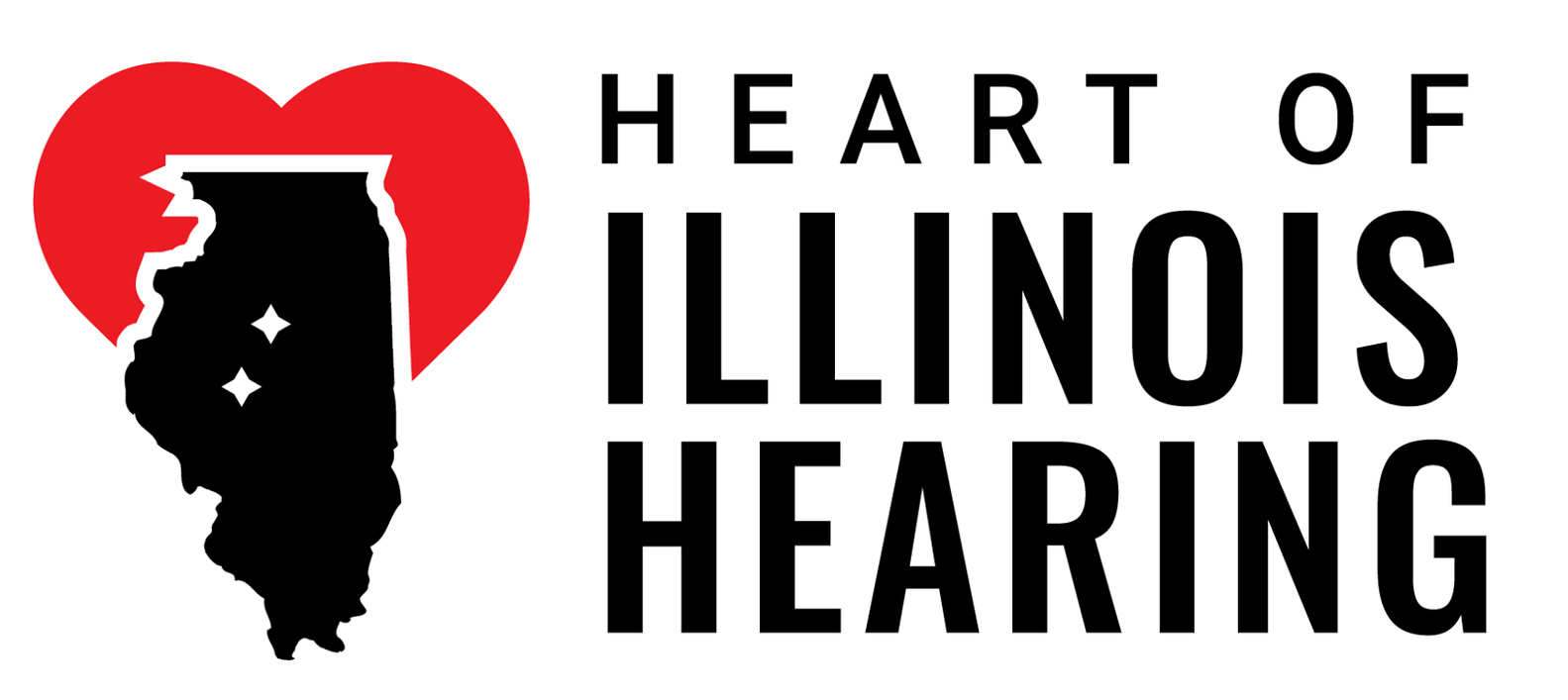Hearing Tests 101

Should I Get a Hearing Test?
If you think you're experiencing hearing loss, help is available in the Peoria, IL and Springfield, IL areas at Heart of Illinois Hearing. Your journey with us begins with a comprehensive hearing evaluation. This is not just a simple screening. We use advanced diagnostic equipment to conduct a series of hearing tests that measure your ability to hear different frequencies and understand speech in various environments. This thorough assessment allows us to pinpoint the exact nature and degree of your hearing loss, forming the foundation for a customized treatment plan.
If any of the following things have happened to you, it's important to schedule a hearing test with one of our specialists as soon as possible.
- are not able to hear people speaking clearly.
- You constantly have to turn up the volume of the TV or radio in order to hear it, often making others in the room uncomfortable.
- You are always asking others to repeat what they say to you.
- You experience frequent ringing in your ears that won’t subside.
- You find it tough to hear people in noisy environments – such as restaurants, airports, or parties.
- You are unable to hear things like your alarm clock, cell phone notifications, or the timer bell on the oven.
- You have trouble hearing when on the phone, especially if there is background noise.
- You think your hearing loss is affecting your relationships with others.
- You try to read other people’s lips.
If you’ve experienced any of these, call or text Heart of Illinois Hearing for a hearing test to see if hearing aids can help you.
What Does a Hearing Test Detect?
A hearing test can detect issues from an earwax obstruction to permanent hearing loss. During your hearing test at Heart of Illinois Hearing, one of our hearing aid specialists will measure your hearing ability through a series of tones at different volumes.
Once the test is done, your hearing aid specialist will design an audiogram that shows your hearing sensitivity. This measures the lowest volume levels at which you can hear certain sounds. The louder it takes to hear a sound, the greater the severity of hearing loss.
Our hearing aid specialist will review your hearing test results with you and determine whether you could benefit from a hearing aid.
How to Read Your Hearing Test Results
The normal range of hearing for a healthy adult is between 20 and 20,000 Hz. Most sounds we hear fall between 250 and 6,000 Hz. An adult with normal hearing should be able to hear sounds between 1 and 20 decibels at any frequency. Hearing loss of less than 25 decibels is considered normal for an adult, and a hearing aid probably isn’t needed.
Mild
Adults with hearing loss in the 26 to 40 decibel range are said to have mild hearing loss. At this stage, someone may have difficulty understanding soft-spoken people or talking from across a room.
Moderate
Hearing loss in the 41 to 55 decibel range is considered as moderate hearing loss. At this point, a person will have difficulty hearing others speaking at a normal volume, while hearing in noisy places becomes extremely difficult.
Moderately Severe
Hearing loss in the 56 to 70 decibel range is considered moderately severe. Now, you will have a tough time hearing quiet conversations or the telephone ringing.
Severe
Severe hearing loss is defined as hearing loss that falls between 71 and 90 decibels. Those with severe hearing loss can only hear others if they are standing next to them and speaking in a loud volume.
Profound
Hearing loss measured at 91 decibels and higher is called profound hearing loss. People at this stage are unable to hear loud speech or any everyday sounds around them.
No matter how mild or severe your hearing loss is, call or text Heart of Illinois Hearing to schedule a hearing test.
Will My Insurance Company Cover the Cost of My Hearing Test?
The answer to that question depends, as insurance coverage depends on both the state you live in and your health insurance policy. Heart of Illinois Hearing would be more than happy to contact your insurance carrier if you’re unsure of hearing test coverage.
Medicaid will cover the cost of hearing tests only for children and young adults age 21 or younger. Medicare will cover the cost of your hearing test if you get a referral from your primacy care physician.


